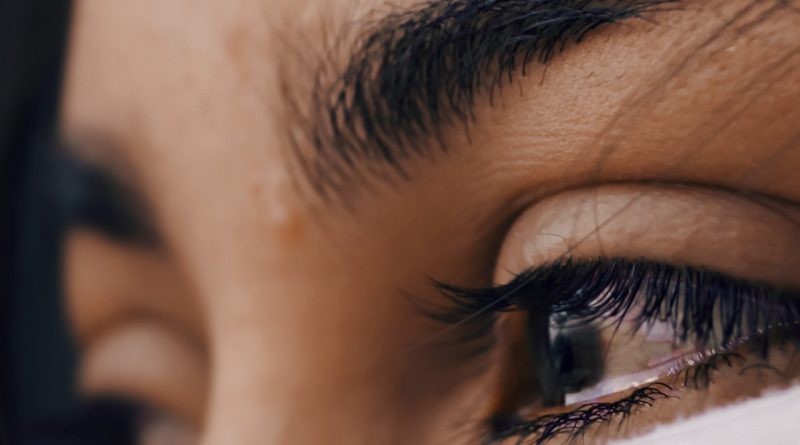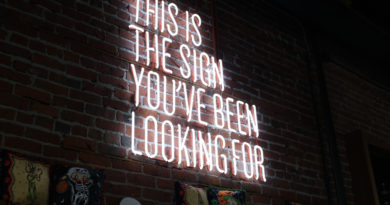Coping With Death Of A Loved One
Years ago, I’ve had a dog. I adopted an adult dog with a past I’ve had no way of knowing. At the beginning, ours was an adversarial relationship, we took time to get to know one another. Both wounded by life, we were equally suspicious and not eager to make new commitments. Once we’ve gotten past the initial hesitation it turned out that the dog and I were uniquely matched: he was as proud, stubborn and ultimately, as loyal as I am.
With time and the way life’s unfolded we’ve grown to accept each other’s vices and became indispensable to one another. For many years I’ve been used to him pulling socks off my feet and shredding them into pieces. I’ve gotten used to having his black hair on my light-colored sweaters and sofa. I grew to accept that Christmas meant torn gift wrap throughout the house…….
We walked a long distance together; a long distance which included his many bouts with bladder stones, several surgeries and many successful recoveries.
Then one day, by that time he was 19 years old, my most favorite dog in the world has gotten very ill. I rushed him to a vet. The vet decided to put him under anesthesia for a thorough examination. While the dog was still under anesthesia, I’ve been called into the examination room. The doctor explained the situation to me: the dog was very ill; would require surgery and extensive treatment afterwards. With all that, the dog’s age was a factor that wasn’t in his favor…. The vet was against proceeding and trying to save the dog. He recommended that the dog be euthanized.
It hit me like a hammer. I didn’t expect that “just another” visit to a vet would take such a dramatic turn. I wasn’t ready. The dog was under anesthesia, we never had a chance to say our goodbyes. The vet said that it is best to administer euthanasia while the dog is still under anesthesia and can’t feel it. Now, as he put it, would be the best time for the dog to die. We spent 19 years together and I’ve been given a few miserable minutes to decide about his life or death…. I couldn’t.
And then I asked myself one of those “what if” questions. If I were in my dog’s condition, how would I want my fate to be decided? I wouldn’t want to suffer if there was no chance of me making a full recovery or to appease someone’s conscience. I’ve made the decision to let him go within a few minutes. Yes, I took the loss hard. For a long time I hated undamaged socks, the offensively clean sofa and sweaters unblemished by black dog’s hair…. (Coping with death of a Loved One – either human or not – is tough.)
I don’t believe that I have recovered from the loss, yet. Even though I’ve always had dogs, I didn’t have a dog since this one passed away. But I never once regretted my decision. I believe in my heart that helping him die was a loving and compassionate decision. A decision I wish – when the time comes – someone will be generous enough to make for me. I’ll always miss him, but I take comfort in knowing that he didn’t know what’s coming and didn’t suffer at the time of death.
I’m proud that I’ve been there to hold him and give him comfort when the “lethal injection” was administered, no matter how hard it was for me to witness. I petted my dog even after when the unaffected by emotions vet asked whether I’d like him to dispose of the body or if I wanted to remove and take my dog’s collar with me as a keepsake….
The above is the account of my losing the pet I loved. But death, loss and grief isn’t limited to pets. In the last few years we’ve lost three family members (among them my beloved Mother). I’m saying that so you know that my experience with death isn’t limited to that of having my dog euthanized. Having clarified this, it seems to me that in our relationships with the humans we love, we’re often much less compassionate than we’re with our pets.
In many areas the advances of medicine are nothing short of amazing. I wonder whether ethics kept up with science or if all the science is applied in ethical manner. The other moral dilemma is the family’s reaction to the news that a Loved One’s death is near. Should family members of patients facing the unavoidable insist on keeping patients alive (even when recovery isn’t expected) for as long as possible?
We refuse to let our Loved Ones go. Do we act out of compassion for them or out of concern for ourselves? Do we insist on treatment in the most hopeless cases out of fear of loss, separation, or death? Is our refusal to let a Loved One go an attempt at denying our own mortality? Is love that possessive and selfish?
Why aren’t we more compassionate in a human life and death crisis and why – when circumstances justify it – we don’t afford our Loved Ones the freedom from suffering and ultimately, the freedom to die? Is it really about love and fear of death or something entirely different?
Could it be that by letting go of the person we love, we’re sacrificing (letting go of) a part of ourselves? Could it be that the death of someone we love is also the loss of a part of ourselves and therefore we insist on keeping our Loved Ones alive at any cost to spare ourselves – and not them! – the trouble of dealing with change and the pain involved in redefining ourselves outside of the relationship with the person who’s dying?
It’s quite strange if you think about it. People would give a puppy to someone who has just lost a dog. Parents, who have lost a child, try to conceive another one as soon as possible……… In order to go on with life, those left behind cling to (try to preserve) their self-image (their role within the family, for instance) even if it involves literally replacing the dearly departed… Others deal with loss by creating a charitable foundation in the name of the Dearly Departed and become advocates for causes or fight for cures……..
It appears that when it comes to coping with death of a Loved One, the survivor has four options:
1/ to “replace” the Dearly Departed (or otherwise fill his or her role) and cling to the old self-image which speeds up recovery from the loss
2/ to assume the self-image of the person who’s passed which in some way keeps the Dearly Departed alive
3/ to accept the loss of the person AND the loss of one’s self-image which is quite a painful process for the survivor
4/ to evolve by mourning the death of the Loved One as well as the loss self-image and then develop a new self-image from scratch which may well be the hardest and most constructive way to heal
*
There is a huge difference between losing the person we love and the pet we love.
We react to the prospect of death of a person with denial; of a pet with compassion.
Losing a Loved One means losing a part of our identity; losing a pet means losing a dear presence.
It seems that either we relate to people on a different level than to pets OR that we can’t be as altruistic with the people we love as with our pets.
As said, these are merely assorted thoughts intended to spark reflection and by no means authoritative conclusions.




